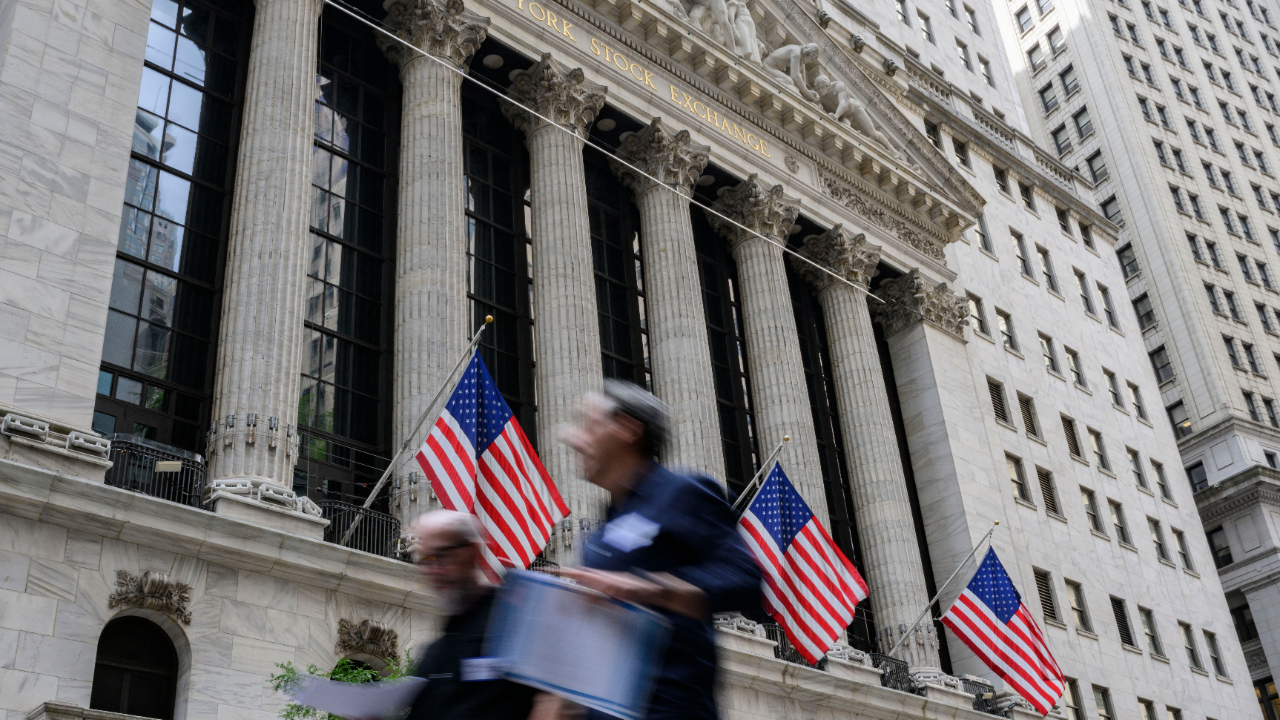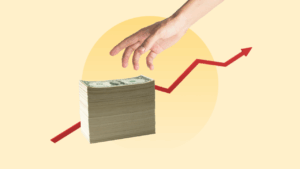Recession odds for 2023 are at 64% — here’s how a downturn could impact you

Recessions are more than just a slowing economy, volatile stock market and a bad spell of data. Behind the numbers and jargon are real people — and real livelihoods at stake.
Think about the economy as an ecosystem. Each decision made by a business, financial institution or person has ripple effects throughout the entire financial system. Recession-fearing investors make markets volatile; that, in turn, limits publicly traded firms’ access to cash. Fewer consumers out shopping weighs on firms’ sales — forcing businesses to cut costs to make ends meet. Joblessness can further exacerbate belt tightening among consumers, perpetuating even more unemployment.
Figuring out which comes first is like playing a game of the chicken or the egg. But for everyday Americans, it’s often the effect that matters more than the cause.
A mild recession is a cold, a deep recession is the flu and a depression is long Covid.
— Jaime Peters Finance professor at Maryville University
Economists in a Bankrate poll said there’s a 64 percent chance of a recession by the end of 2023. But don’t panic: Not all recessions are as severe as the coronavirus pandemic or the Great Recession before it. Yet, understanding how recessions impact you can help you form a better financial game plan when a downturn does inevitably hit.
Here’s what a recession means for your wallet and the biggest ways it can make your life feel different.
1. Recessions can lead to job loss — and how long you’re out of work depends on the severity of the downturn
Recessions disrupt the labor market most.
“If we just look at the examples of recessions in recent history in the U.S., they have some things that are in common and some factors that set them apart,” says Mark Hamrick, Bankrate senior economic analyst. “What they have in common is that the economy’s downturn puts Americans’ personal finances at some risk and is actually damaging for some.”
Businesses often go into survival mode in the middle of a downturn. Facing a slowing economy, they may abandon their expansion mindset and instead find ways to cut costs. They might delay investments or sideline new projects that seemed smart when the economy was still growing. At the worst, they might slash departments or shed workers — and maybe even shutter.
Throughout every recession, joblessness has increased. How much depends on the nature of the downturn. During the coronavirus pandemic, joblessness surged to 14.7 percent, the highest since the Great Depression.
Americans don’t stop feeling the effect of a recession after they’ve lost their job. How long it takes them to find new employment depends on the state of the financial system, the industry they work in and how many companies out there are in strong enough financial shape to weather a downturn.
At one time during the Great Recession, for example, 45 percent of those who were jobless were unemployed for more than six months, a level even the coronavirus pandemic didn’t eclipse.
Americans might also be underemployed, working temporary jobs or fewer hours than they’d prefer. Others might take a job outside of their field just to make ends meet. The number of Americans who take a part-time job for so-called “economic reasons” has climbed throughout every recession in records dating back to the 1950s.
2. Recessions often reduce your job prospects and diminish your job security
Recessions even impact those lucky enough to remain employed. If workers witness their employer slash projects or know peers who’ve lost a job, they often end up feeling scared for their income and stressed about proving their value.
Those apprehensions often culminate in a smaller share of workers job-hopping or leaving their positions — long seen as a sign of economic confidence. The share of workers quitting their jobs has plunged during each of the past three recessions since the Department of Labor began tracking the measure in the late 2000s.
Workers who found a new, better-paying job over the past year are feeling more apprehension about their job security, according to a recent Bankrate survey.
“If you’re in a recession and hearing all of this news about layoffs or companies slowing hiring, then you might be a little more hesitant to decide to switch or take that new job,” says AnnElizabeth Konkel, economist at the Indeed Hiring Lab. “A fear when the news of layoffs circulates is, if you take a new job two weeks later, are you going to be the first to get laid off?”
Whether it’s tied to reduced appetite to hire or fewer businesses, job openings also plunge in a downturn and tend to take years to recover. In the aftermath of the Great Recession, for example, five years had passed before employers’ job openings hit their pre-downturn level. Americans, in turn, might feel like they have fewer job prospects out there, another factor keeping them in the same position.
In today’s labor market, job openings are still near record levels — making economists push back on the notion that the U.S. economy is currently in a recession even though it shrank for two consecutive quarters. Employers have about 10.5 million vacant positions, with the ratio of jobless workers to job openings just under 2-to-1.
3. Workers have less bargaining power, meaning smaller raises and less flexibility
Fewer jobs often means the worker power dynamic shifts. Businesses might not be in a hurry to replace individuals who’ve left, while fewer people quitting might mean fewer companies are short-handed. They might also offer fewer raises, if they even have the wherewithal to boost pay at all.
Flexible work arrangements brought on by the pandemic — such as remote work or alternate schedules — might even start to fade, Konkel says.
“Recessions certainly reduce workers’ leverage to ask for more from employers — for a higher wage, some sort of non-monetary benefit, an extra week of leave, a retirement plan and even work location,” she says. “Workers lose that leverage because of the idea: ‘If I would lose this job, where else would I go?’”
4. Financial institutions might be stricter lending out money
Financial institutions are often stricter about lending money out — either to cut costs or to avoid the ultimate risk of an individual or business being unable to pay them back.
Chase, Wells Fargo and Citi, for example, stopped accepting applications for new home equity lines of credit during the coronavirus pandemic, tightening the belt the same way a consumer would during a downturn. Credit card companies, meanwhile, reduced credit card limits for some cardholders.
Those decisions can make it harder for businesses and consumers to find funding.
5. Wealth accumulation slows — and some are left to catch up
Americans can feel recessions in their retirement accounts, with bumpy markets often weighing on their investments. They might even start to feel that impact long before any recession has officially begun.
During a recession, the stock market can often enter what’s called a “bear market” — defined as a period when stocks lose at least 20 percent of their value. Those can have near-term impacts on valuations, with the average S&P 500 bear market since 1929 resulting in a roughly 37 percent decline, according to a Bankrate analysis of data from Yardeni Research.
Workers who graduate and try to find their first job during a recession can also be hard-hit. When workers are hired during a downturn, they likely take a lower wage than they would have, had they found the job in a strong economy, according to a Department of Labor analysis. Those workers often play a game of catch up for at least 10 years.
“The prime example is millennials graduating during the Great Recession,” Konkel says. “Over their lifetime, that can account to a tremendous sum of money that they have lost out on.”
Bottom line
With workers sidelined and businesses likely not producing as much as they could, recessions are considered unproductive — and often destructive. Simply put, recessions leave resources wasted, and it takes a while for them all to come back online.
Everyone has a different recession experience, in part depending on their residence and job. Some positions can be cyclical. The airlines and auto industry, for example, might be hurt in a downturn because fewer people can afford to travel or make a big-ticket purchase. Demand for other jobs, such as the healthcare industry, persists with or without a downturn.
Individuals who could afford to build an emergency fund, meanwhile, will likely not feel as stressed as the lower-income earners who lived paycheck to paycheck and struggled to stash money away.
Long-running inequalities make recessions even harder for historically disadvantaged groups. The unemployment rates for Black and White workers, for example, behave similarly during recessions — but white Americans are often called back to work twice as fast.
“When we think about the economy, we talk about it as if it’s one thing. It’s not,” says Maryville University’s Peters. “Every individual’s experience with a recession — should we be in one — is going to feel different because it’s going to depend on your situation.”
Why we ask for feedback Your feedback helps us improve our content and services. It takes less than a minute to complete.
Your responses are anonymous and will only be used for improving our website.






